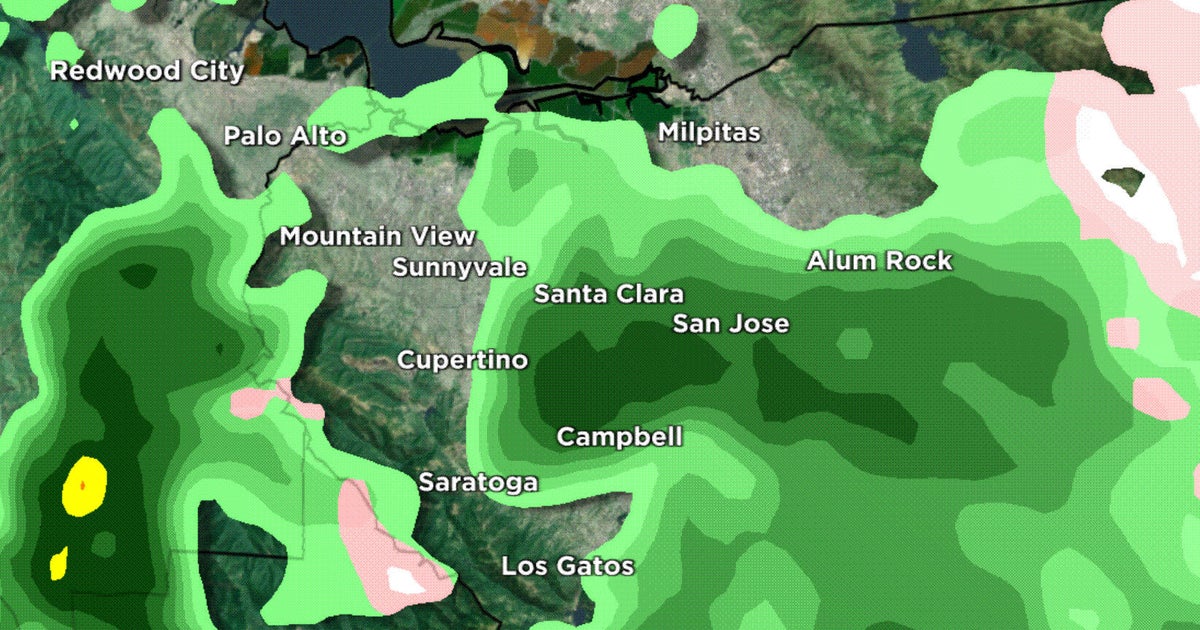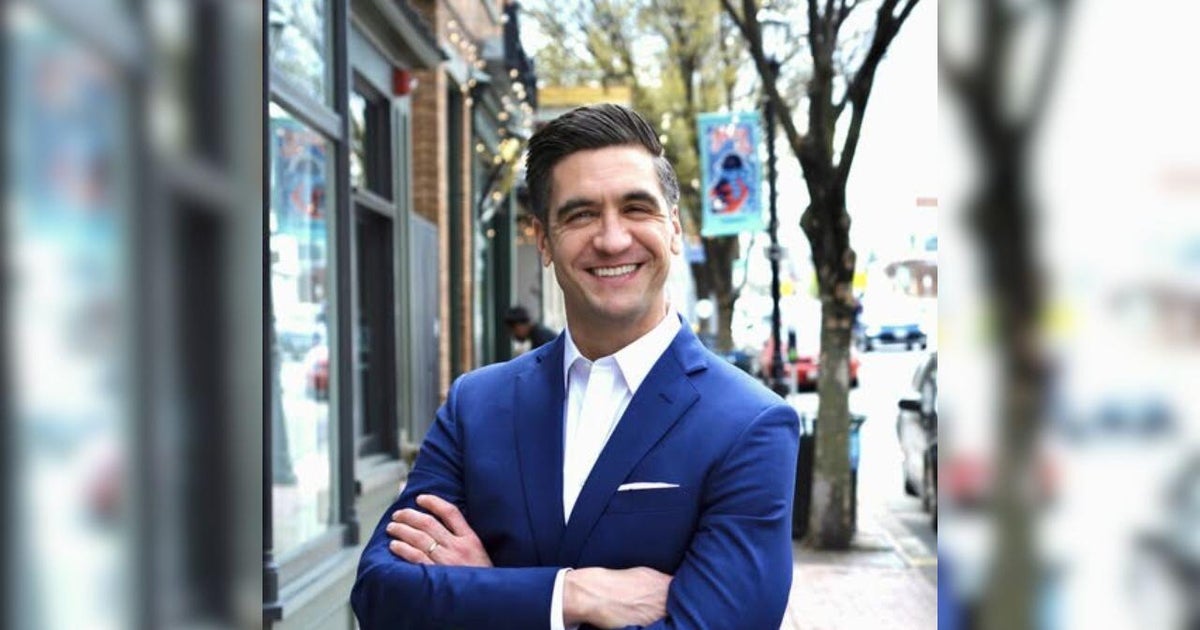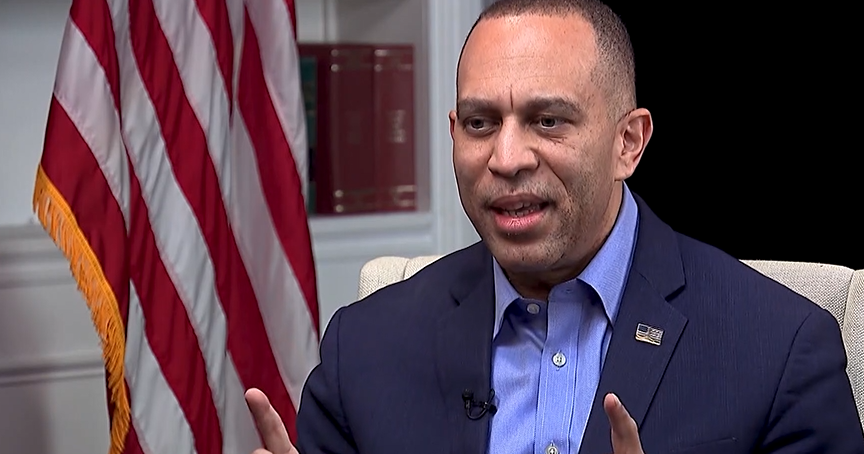Reforms Create Competitive House Race In East Bay
OAKLAND (CBS / AP) -- Democratic Rep. Pete Stark, the longest-serving member of California's largest-in-the-nation congressional delegation, offered a taste of his trademark invective.
"It's a question of choosing experience, or a novice who likes to lie," Stark told the crowd of Democratic attorneys on a recent afternoon, as the sweet smell of ribs wafted from the buffet at a barbeque house along Oakland's waterfront.
The 80-year-old Stark is used to coasting to re-election in the liberal enclave of the Bay Area he has represented since the end of the Vietnam War. Legislative gerrymandering and California's primary system virtually ensured that he would emerge victorious in November.
All that has changed this year, as Californians deal with two major political reforms that are remaking the congressional landscape and creating competitive races for the first time in decades. The results are a long list of up-for-grab seats, once-safe incumbents fighting for their political lives and tens of millions of dollars in campaign spending.
For the Democrats, California is one of three states—New York and Illinois are the others—that hold the most promise of significant gains that could help them reduce the GOP majority in the House. Winning the House outright still remains a tough haul despite better numbers nationwide for President Barack Obama.
For Republicans, California is a chance to keep Democrats in check.
Stark is a 19-term incumbent squeezed by the two political reforms—an independent citizens panel that redrew the congressional boundaries and a new primary system that sends the top two vote-getters to the general election regardless of party affiliation. Both changes were approved by voters in recent years.
Not only is Stark in a newly drawn district in which many voters are unfamiliar with him, but his general election opponent is a fellow Democrat who finished a close second in the June primary. The congressman has acknowledged that even he can no longer go on autopilot if he hopes to win re-election.
Stark's challenger, Eric Swalwell, a 31-year-old prosecutor for the Alameda County District Attorney's Office, casts himself as a native son of Stark's new district, which was redrawn to include more moderate, inland suburbs south and east of Oakland, which is no longer in the district. For years, Stark has lived in Maryland's Chesapeake Bay region and flies back to California for town halls and other events.
"I played soccer on all the ball fields in this district. I've worked as a prosecutor in all these courts and have worked with regional governments as a councilman," Swalwell, a member of the Dublin City Council, said in an interview. "I'm basically running against a ghost who has been in hiding and doesn't even come out here to defend his record."
While Stark is challenged by both of California's new political reforms, which are taking effect on a statewide basis for the first time, the outcome of that race will not change the makeup of Congress. The Stark-Swalwell race is one of eight same-party runoffs this fall caused by the top-two primary.
Independent redistricting has created competition between Democrats and Republicans in about a dozen other races, contests that could help alter the House this year or in 2014.
"California is really the central battleground for the future of control of the House," said Dan Conston, a spokesman for the Congressional Leadership Fund, a super PAC aligned with House Speaker John Boehner, R-Ohio, that supports GOP candidates. "The battlefield doesn't look anything like what Democrats hoped it was going to look like."
Democrats, however, say independent redistricting has worked against Republicans in a state where the GOP has only about 30 percent of registered voters. Democrats also are trying to wrest seats from several Republican incumbents, including Rep. Mary Bono Mack, who represents a Southern California desert district that runs through Palm Springs.
Her challenger, Democrat Raul Ruiz, is a physician with support from a political action committee led by House Minority Leader Nancy Pelosi, D-Calif.
Democrats hold every statewide office in California and the two U.S. Senate seats and have majorities in both houses of the Legislature. They also hold a registration edge of 2.2 million voters over Republicans, and independents outnumber Republicans in about a dozen congressional districts.
The Legislature's gerrymander of legislative and congressional districts after the 1990 census cemented Democratic control of the Assembly and Senate while protecting incumbents of both parties.
Between 2000 and 2010, just one House seat changed party hands, when Rep. Jerry McNerney won a seat in the agriculture-heavy Central Valley from former GOP Rep. Richard Pombo.
Now even the contours of McNerney's district have changed, and he faces a tough campaign against Republican challenger Ricky Gill, a 25-year-old law school graduate whom national Republicans consider one of their top hopes for defeating a Democratic incumbent.
Gill, who netted a short speaking slot at the Republican National Convention in Tampa, Fla., has snagged endorsements from former Florida Gov. Jeb Bush and South Carolina Gov. Nikki Haley. He also has proved an effective fundraiser, bringing in nearly $1.8 million in campaign cash, some of it thanks to his parents' connections in California's growing Indian-American community. McNerney has raised about $1.5 million.
Their race for the 9th Congressional District is partly within the Sacramento television market, which is commanding much of the spending this year because it touches numerous competitive districts.
One of those is the seat now held by Republican Rep. Dan Lungren, a former state attorney general who faces a Democratic challenger, physician Ami Bera, whom he barely defeated two years ago.
Another is the race involving incumbent Democratic Rep. John Garamendi, who is competing in a much less favorable district than the one that elected him. His opponent, Republican Kim Vann, is a member of a farming and ranching family stretching back four generations in the heart of the new district, north of Sacramento.
Vann said Garamendi still behaves as if he were trying to win over progressive voters in his old San Francisco Bay Area district rather than reaching out to families in rural Colusa County.
"This is my home. I'm not running around looking for a seat to shop," she said. "All you have to do is look at his voting record and look at the needs of the people in this district, and they don't match up."
Garamendi, who has held state and federal political offices for nearly four decades, said he was confident voters recognized his service to the area. He said Vann is relying on "shadowy" super PACs to fund a flurry of negative TV ads against him.
"In a normal campaign, you would be looking at a million-dollar congressional race," Garamendi said. "But with what amounts to unlimited funding, they are buying up television time starting in August. And a million-dollar television buy in Sacramento means you're basically on every commercial break."
In Southern California, Democratic-leaning super PACs have spent about $750,000 to support state Assemblywoman Julia Brownley, who faces a tight race against Republican state Sen. Tony Strickland in the 26th District along the Ventura County coastline. Democrats have just a 4 percentage point advantage.
Democratic incumbent Rep. Lois Capps is facing the toughest race of her political career in a newly drawn district along California's central coast that includes Santa Barbara and San Luis Obispo. Former state Sen. Abel Maldonado, a wealthy farmer, is mounting a spirited challenge in a district that is nearly evenly divided between Democrats and Republicans.
Independents account for about 1 in 5 voters in both of those districts and are seen as key for each of the campaigns.
Having such a large number of congressional districts in play has attracted far more money to California than in years past.
The Democratic Congressional Campaign Committee, House Democrats' official campaign arm, had reserved more than $8 million on broadcast and cable TV in the state as of Sept. 21, compared with $1.6 million last cycle, spokeswoman Jennifer Crider said.
In that same period, Republicans had reserved $7.6 million for five California races, $5.4 million for the Sacramento market alone.
Super PACs from both sides already had spent nearly $3 million on California's congressional, ranking the state behind only Texas and Indiana for independent expenditures for state congressional contests races through the end of June, according to MapLight, a nonpartisan group that analyzes money's role in politics.
(Copyright 2012 by CBS San Francisco. All Rights Reserved. This material may not be published, broadcast, rewritten, or redistributed.)







